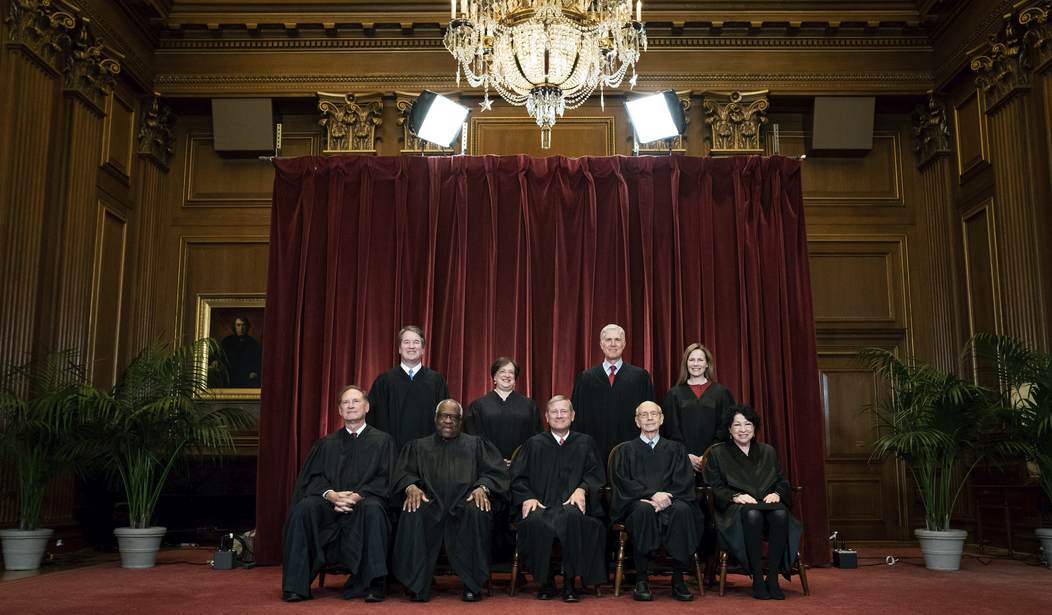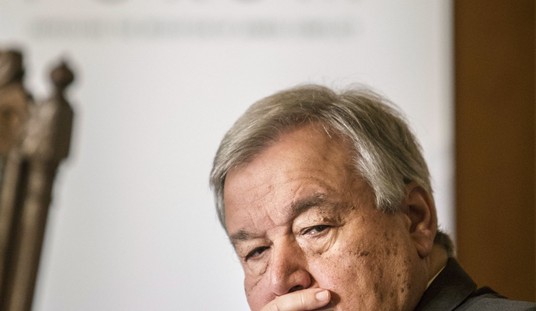Senate Minority Leader Mitch McConnell appeared as a guest on Monday morning with Hugh Hewitt on the Salem Radio Network.
During the interview, Hewitt asked McConnell about the movement among radical left-wing Democrats to push Supreme Court Justice Stephen Breyer into retirement while the Senate remained under the control of Chuck Schumer and the Democrats. That would allow any nominee from the Biden White House to be pushed through the Senate on a majority basis, with Vice President Harris standing by to cast the tie-breaking vote if no Senate Republican was willing to vote in favor of the nominee.
McConnell was very complimentary in his comments about Breyer. He noted that Breyer had joined the position expressed by the late Justice Ruth Bader Ginsberg that nine was the correct number of Justices for the Supreme Court. Breyer spoke out against the left-wing radicals’ plan to “pack the court” by adding to the number of Justices and then allowing all the new seats to be filled by Biden nominees while the Democrats controlled the Senate.
Before turning the discussion to a review of Senate seats up for election in November 2022 and how that might change the balance of power in the Senate, Hewitt asked what McConnell might do if faced with the same situation he was faced with following the death of Justice Antonia Scalia during the final year of the Obama Administration.
Hewitt: Let me ask you, if you regain the majority in 2022 for the Republicans, and there’s a very good chance of that happening, and I’ll come back to the individual races in a second, would the rule that you applied in 2016 to the Scalia vacancy apply in 2024 to any vacancy that occurred then?
McConnell: Well, I think in the middle of a presidential election, if you have a Senate of the opposite party of the president, you have to go back to the 1880s to find the last time a vacancy was filled. So I think it’s highly unlikely. In fact, no, I don’t think either party if it controlled, if it were different from the president, would confirm a Supreme Court nominee in the middle of an election. What was different in 2020 was we were of the same party as the president.
Hewitt: Correct.
McConnell: And that’s why we went ahead with it.
Hewitt mentioned during the interview that there are two historic cases already set to be decided by the Supreme Court during its next term starting in October 2021. The New York State Rifle and Pistol Association Vs. Corlett case will determine if the 2nd Amendment provides a constitutional right to carry a firearm in addition to possessing a firearm in your home, or whether the act of “carrying” a firearm can be so tightly regulated by state and local governments so as to make the right to possess a firearm practically meaningless outside the home.
The Dobbs V. Jackson Women’s Health Organization abortion case could undermine the entire legal justification for finding a “right” to abortion in the Constitution. At the very least the outcome will likely recognize a meaningful interest on the part of states to regulate the procedure beyond that which is currently allowed by the Court’s prior decisions.
The presence of these two cases is the most compelling justification for Justice Breyer to not leave the Court at this moment in time. August will mark his 27th year on the Court and the idea that he would retire this year is nonsensical, especially since the politics of replacing him during the summer of 2022 would be the same as replacing him now. The only difference will be that the November 2022 mid-term elections would follow almost immediately after a confirmation fight over a new Justice — a fight the GOP would not be able to win, but one it would use as a political weapon in the elections.
McConnell made one other piece of news near the end of the interview. Hewitt noted that Senator Scott from South Carolina has already indicated that the Senate Republican Campaign Committee will not be involved in funding any candidates in open primary contests, where a GOP Senator is retiring. But McConnell confirmed for Hewitt that his PAC, the Senate Leadership Fund, would be active in funding and assisting some primary candidates with fundraising which will give them an advantage over the field in the primary election. McConnell defended the decision as follows:
Hewitt: But will your political action committee, in which you have a decisive role, the Senate Leadership Fund, get involved, because I am very afraid of outliers getting the nomination and losing, for example, in Missouri. I think we have some unelectable Republicans who want nominations, and they just cannot get the nomination or we’re going to lose easily defended seats. Will the Leadership Fund be involved?
McConnell: Yeah, if necessary. I mean, you’re recalling the same period I am, 2010 and 2012 when we nominated four or five candidates by being passive in primaries that simply could not appeal to a general election audience. There’s no question that in order to win, you have to, in most states that are going to determine who’s in the majority next time, you have to appeal to a general election audience. And some of the candidates who filed in these primaries clearly aren’t. I’ll be keeping an eye on that. Hopefully, we won’t have to intervene. But if we do, we will.
This approach will likely bring McConnell into conflict with Pres. Trump, as there will likely be more than one race where there is a candidate running in a GOP primary who Pres. Trump will endorse and campaign for, while McConnell and Senate Republicans favor someone else in the same race.
Such conflicts will come up during the primary season which will be getting underway in approximately 12 months.















Join the conversation as a VIP Member